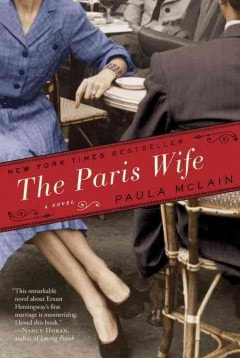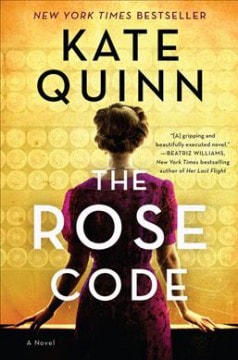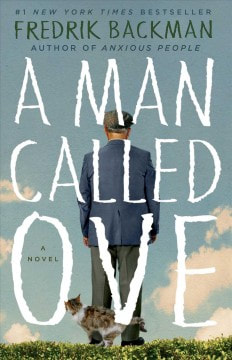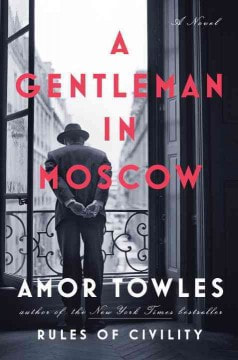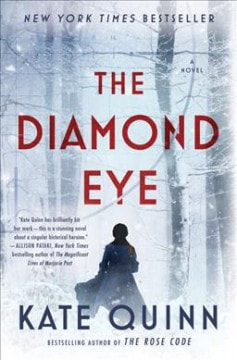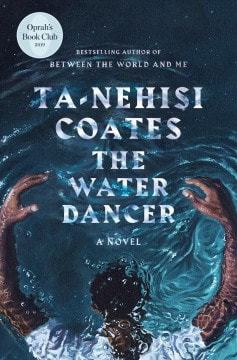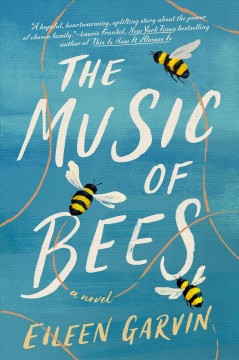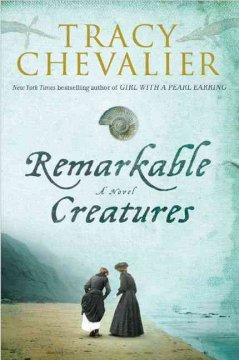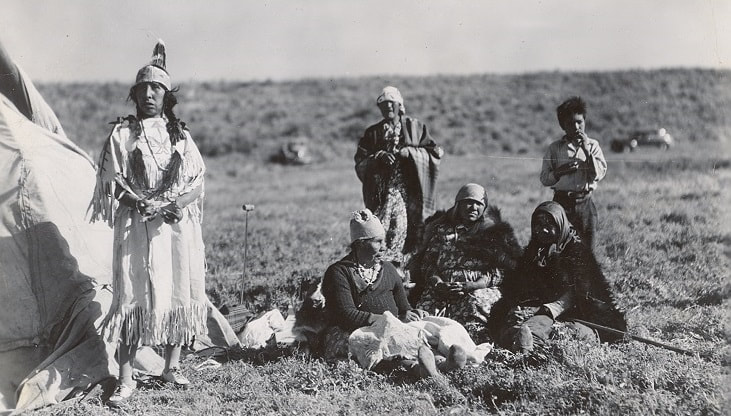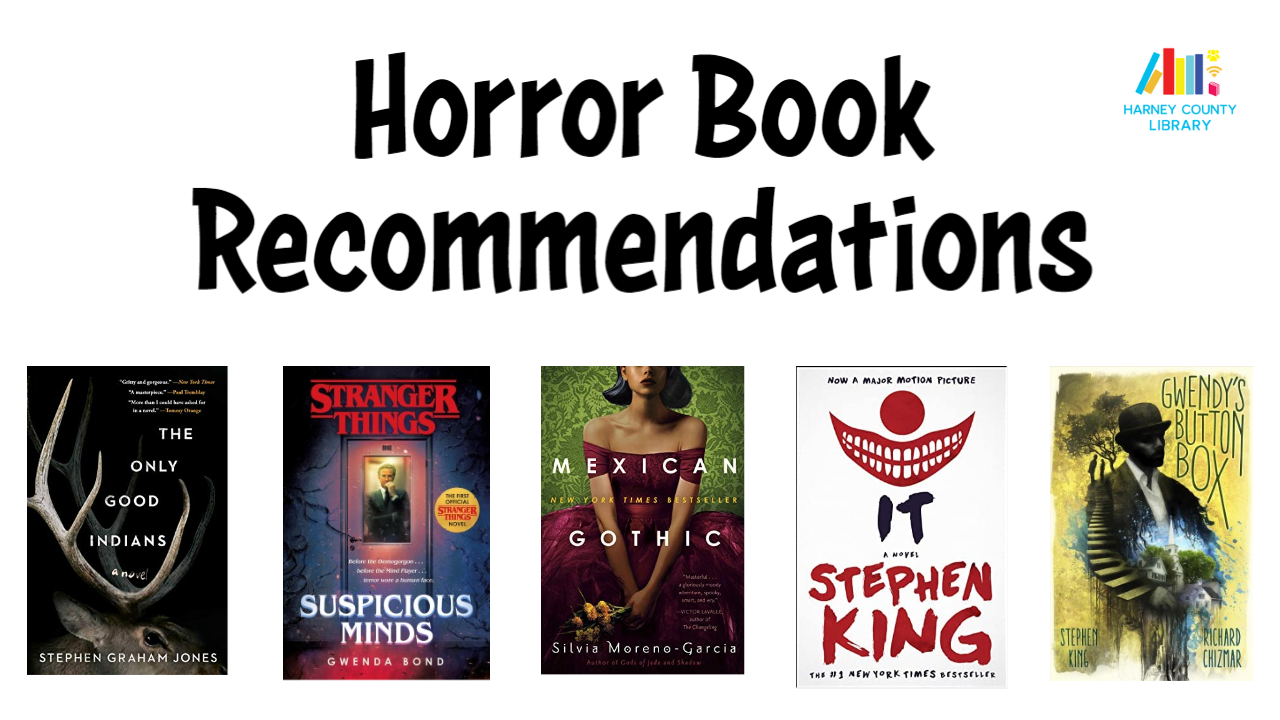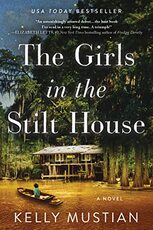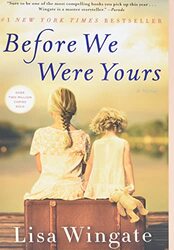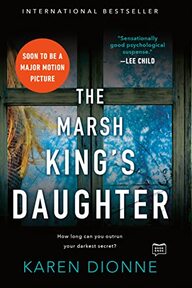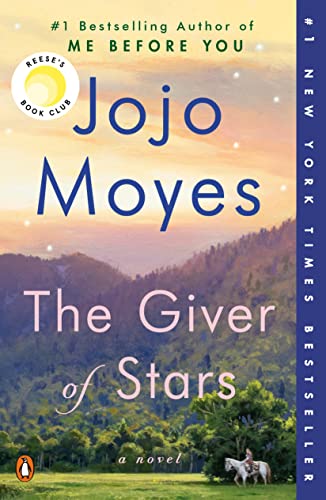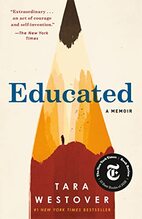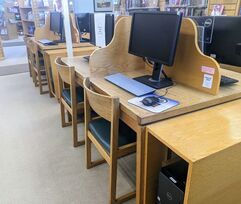|
As the year comes to an end, here is a reflection of our staff Adult Fiction picks for the year 2022. So many great books and not enough year to read them all. Here is a recap of what Harney County Library staff read and recommends for anyone looking for something to knock their socks off. Stay tuned for 2023 blog posts to highlighting important reading materials and cheers to a wonderful year ahead. ADULT:
0 Comments
𝘾𝙚𝙡𝙚𝙗𝙧𝙖𝙩𝙚 𝙩𝙝𝙚 𝙧𝙞𝙘𝙝 𝙖𝙣𝙙 𝙙𝙞𝙫𝙚𝙧𝙨𝙚 𝙘𝙪𝙡𝙩𝙪𝙧𝙚𝙨, 𝙩𝙧𝙖𝙙𝙞𝙩𝙞𝙤𝙣𝙨, 𝙝𝙞𝙨𝙩𝙤𝙧𝙞𝙚𝙨 𝙖𝙣𝙙 𝙖𝙘𝙠𝙣𝙤𝙬𝙡𝙚𝙙𝙜𝙚 𝙩𝙝𝙚 𝙞𝙢𝙥𝙤𝙧𝙩𝙖𝙣𝙩 𝙘𝙤𝙣𝙩𝙧𝙞𝙗𝙪𝙩𝙞𝙤𝙣𝙨 𝙤𝙛 𝙉𝙖𝙩𝙞𝙫𝙚 𝙥𝙚𝙤𝙥𝙡𝙚.
Pictured here are Marian Louie, Mary Teeman, Annie Kennedy Shakespeare, Jennie Louie, and Everett Capps of the Burns Paiute Tribe in 1939. Marian Louie was a keeper of Burns Paiute tribal history handed down from elders such as her husband's parents, Captain and Jennie Louie, who experienced the atrocities of the 1878 Indian wars in Harney County first hand. Following is an excerpt from the History of the Malheur Paiutes as told by Marian Louie, translated by Minerva Soucie. “𝘗𝘢𝘪𝘶𝘵𝘦𝘴 𝘸𝘦𝘳𝘦 𝘵𝘩𝘦 𝘰𝘯𝘭𝘺 𝘵𝘳𝘪𝘣𝘦 𝘵𝘩𝘢𝘵 𝘮𝘢𝘥𝘦 𝘵𝘩𝘦 𝘏𝘢𝘳𝘯𝘦𝘺 𝘉𝘢𝘴𝘪𝘯 𝘵𝘩𝘦𝘪𝘳 𝘩𝘰𝘮𝘦 𝘣𝘦𝘧𝘰𝘳𝘦 𝘵𝘩𝘦 𝘴𝘦𝘵𝘵𝘭𝘦𝘳𝘴 𝘤𝘢𝘮𝘦. 𝘛𝘩𝘦𝘺 𝘤𝘢𝘮𝘱𝘦𝘥 𝘢𝘳𝘰𝘶𝘯𝘥 𝘏𝘢𝘳𝘯𝘦𝘺 𝘢𝘯𝘥 𝘔𝘢𝘭𝘩𝘦𝘶𝘳 𝘓𝘢𝘬𝘦𝘴, 𝘪𝘯 𝘵𝘩𝘦 𝘚𝘵𝘦𝘦𝘯𝘴 𝘢𝘯𝘥 𝘚𝘵𝘳𝘢𝘸𝘣𝘦𝘳𝘳𝘺 𝘔𝘰𝘶𝘯𝘵𝘢𝘪𝘯𝘴, 𝘢𝘯𝘥 𝘸𝘦𝘴𝘵 𝘵𝘰 𝘎𝘭𝘢𝘴𝘴 𝘉𝘶𝘵𝘵𝘦. 𝘛𝘩𝘦𝘳𝘦 𝘸𝘢𝘴 𝘢 𝘨𝘳𝘦𝘢𝘵 𝘯𝘢𝘵𝘪𝘰𝘯 𝘰𝘧 𝘗𝘢𝘪𝘶𝘵𝘦𝘴 𝘣𝘦𝘧𝘰𝘳𝘦 𝘵𝘩𝘦 𝘤𝘰𝘮𝘪𝘯𝘨 𝘰𝘧 𝘵𝘩𝘦 𝘸𝘩𝘪𝘵𝘦 𝘮𝘦𝘯. 𝘌𝘷𝘦𝘳𝘺 𝘴𝘱𝘳𝘪𝘯𝘨 𝘢𝘯𝘥 𝘴𝘶𝘮𝘮𝘦𝘳 𝘵𝘩𝘦𝘺 𝘢𝘭𝘭 𝘨𝘢𝘵𝘩𝘦𝘳𝘦𝘥 𝘪𝘯 𝘵𝘩𝘦 𝘏𝘢𝘳𝘯𝘦𝘺 𝘓𝘢𝘬𝘦 𝘳𝘦𝘨𝘪𝘰𝘯 𝘵𝘰 𝘩𝘢𝘳𝘷𝘦𝘴𝘵 𝘵𝘩𝘦 𝘭𝘪𝘵𝘵𝘭𝘦 𝘣𝘭𝘢𝘤𝘬 𝘴𝘦𝘦𝘥 𝘬𝘯𝘰𝘸𝘯 𝘢𝘴 “𝘞𝘢𝘥𝘢.” 𝘛𝘩𝘪𝘴 𝘨𝘪𝘷𝘦𝘴 𝘵𝘩𝘦 𝘯𝘢𝘮𝘦 𝘰𝘧 “𝘞𝘢𝘥𝘢-𝘋𝘪𝘬𝘢𝘢” 𝘵𝘰 𝘵𝘩𝘦 𝘣𝘢𝘯𝘥 𝘰𝘧 𝘗𝘢𝘪𝘶𝘵𝘦𝘴 𝘸𝘩𝘰 𝘭𝘪𝘷𝘦𝘥 𝘪𝘯 𝘵𝘩𝘪𝘴 𝘭𝘰𝘤𝘢𝘵𝘪𝘰𝘯. 𝘛𝘩𝘦 𝘐𝘯𝘥𝘪𝘢𝘯𝘴 𝘧𝘳𝘦𝘦𝘭𝘺 𝘳𝘰𝘢𝘮𝘦𝘥 𝘵𝘩𝘪𝘴 𝘤𝘰𝘶𝘯𝘵𝘳𝘺 𝘪𝘯 𝘢 𝘴𝘦𝘢𝘴𝘰𝘯𝘢𝘭 𝘤𝘺𝘤𝘭𝘦 𝘵𝘰 𝘨𝘢𝘵𝘩𝘦𝘳 𝘵𝘩𝘦𝘪𝘳 𝘧𝘰𝘰𝘥 𝘧𝘰𝘳 𝘸𝘪𝘯𝘵𝘦𝘳. 𝘛𝘩𝘦𝘺 𝘨𝘢𝘵𝘩𝘦𝘳𝘦𝘥 𝘩𝘶𝘤𝘬𝘭𝘦𝘣𝘦𝘳𝘳𝘪𝘦𝘴 𝘪𝘯 𝘵𝘩𝘦 𝘉𝘭𝘶𝘦 𝘔𝘰𝘶𝘯𝘵𝘢𝘪𝘯𝘴 𝘢𝘯𝘥 𝘧𝘪𝘴𝘩𝘦𝘥 𝘧𝘰𝘳 𝘴𝘢𝘭𝘮𝘰𝘯 𝘪𝘯 𝘵𝘩𝘦 𝘮𝘪𝘥𝘥𝘭𝘦 𝘧𝘰𝘳𝘬 𝘰𝘧 𝘵𝘩𝘦 𝘔𝘢𝘭𝘩𝘦𝘶𝘳 𝘙𝘪𝘷𝘦𝘳. 𝘙𝘰𝘰𝘵𝘴, 𝘴𝘦𝘦𝘥𝘴 𝘢𝘯𝘥 𝘯𝘶𝘵𝘴 𝘸𝘦𝘳𝘦 𝘩𝘢𝘳𝘷𝘦𝘴𝘵𝘦𝘥 𝘪𝘯 𝘵𝘩𝘦 𝘩𝘪𝘭𝘭𝘴 𝘢𝘯𝘥 𝘥𝘦𝘴𝘦𝘳𝘵.” Read the entire text online in the Individual and Family History Files section of the Western History Room on the Harney County Library website. Browse our new online digital archive and learn more about the local Paiute culture and history. NEW to our digital collections are four short Paiute creation myths as told by Marian Louie and Chester Beers to Robert W. Gail who illustrated and compiled the stories into booklets. Graphic Novels
Bone Vol. 7 - Ghost Circles by Jeff Smith (author) and Steve Hamaker (colorist.) Summary: The war in the valley rages on while the Bones, Gran'ma Ben, and their loyal rat creature cub venture on a dangerous trek to Atheia, the old city of the royal family. The goal is to bring Thorn to safety, but to do so they must first travel through fields of the mysterious ghost circles where reality meets the supernatural -- and all this while fending off deadly attacks from Briar, Kingdok, and the rat creatures. Short Stories Scary Stories to Tell in the Dark collected by Alvin Schwartz, illustrated by Brett Helquist Summary: Tapped from the oral traditions of American folklore, these ghost stories and tales of weird happenings, witches, and graveyards have startling, funny, or surprising endings. Spooky America - Four real Ghost Stories by Lori Haskins, illustrated by Viviana Diaz Summary: Recounts four fact-based tales of hauntings, including a ghost horse on the coast of Massachusetts, a haunted painting at a Virginia plantation, a skeleton in Colorado, and a ghostly sea captain of California. Shorter Fiction The Berenstain Bears and the Galloping Ghost by Stan and Jan Berenstain. Summary: Brother Bear learns about fear and getting back in the saddle when a ghost haunts the riding academy. The Ghost Town Mystery by Gertrude Chandler Warner (Author) illustrated by Charles Tang. Summary: While visiting a recent purchase of Grandfather's, a ghost town in the Rocky Mountains, the Aldens encounter a mystery involving a run-down motel and a woman who may be a ghost. Ghost Town at Sundown (Magic Tree House #10) by Mary Pope Osborne. Summary: Their magic tree house takes Jack and Annie back to the Wild West, where they experience excitement and danger and try to solve a riddle. Dial-a-Ghost by Eva Ibbotson, illustrated by Kevin Hawkes Summary: A family of nice ghosts protects a British orphan from the diabolical plans of his evil guardians. Longer Fiction Pony by R. J. Palacio Summary: Twelve-year-old Silas is awoken in the dead of night by three menacing horsemen who take his father away. Silas is left shaken, scared, and alone, except for the presence of his companion, Mittenwool...who happens to be a ghost. When a pony shows up at his door, Silas makes the courageous decision to leave his home and embark on a perilous journey to find his father. The Ghost Sonata by Gilda Joyce Summary: When ninth-grader Gilda travels to an international piano competition in Oxford, England, as page turner for her friend Wendy Choy, she finds adventure investigating why Wendy is being haunted and who is frightening the performers, while enjoying a romance with a British boy and her first kiss. Ghost Girl by Ally Malinenko Summary: Zee Puckett loves ghost stories. She just never expected to be living one. It all starts with a dark and stormy night. When the skies clear, everything is different. People are missing. And Zee is seeing frightening things: large, scary dogs that talk and maybe even . . . a ghost. When she tells her classmates, only her best friend Elijah believes her… The Ghost of Tupelo Landing by Sheila Turnage Summary: When Miss Lana accidentally buys a haunted inn at the Tupelo Landing town auction, Desperado Detectives--aka Mo LoBeau and her best friend Dale--opens up a paranormal division to solve the ghost's identity before the town's big 250th anniversary bash"-- Ghost Boys by Jewell Parker Rhodes Summary: Only the living can make the world better. Live and make it better. Twelve-year-old Jerome is shot by a police officer who mistakes his toy gun for a real threat. As a ghost, he observes the devastation that's been unleashed on his family and community in the wake of what they see as an unjust and brutal killing. Soon Jerome meets another ghost: Emmett Till, a boy from a very different time but similar circumstances… Ghost Dog Secrets by Peg Kehret Summary: Sixth-grader Rusty, determined to help an injured dog that is chained outdoors in frigid weather, calls animal control then takes matters into his own hands, aided by his best friend and a ghost collie that leads Rusty to an even deeper secret. Includes instructions for knitting cat blankets. Golden Ghost (Phantom Stallion series) by Terry Farley Summary: Sam discovers a lost palomino mare in a spooky ghost town. Is she just a mirage, or will Sam manage to return her to her owner? Ghost by Jason Reynolds Summary: "Ghost, a naturally talented runner and troublemaker, is recruited for an elite middle school track team. He must stay on track, literally and figuratively, to reach his full potential" By Visalia Horror isn’t that bad after one is over the intense feeling of shock and disgust. As far as movies, instead of being fearful and scared, imagine being one of the actors in the movie, imagine how much fun it could possibly be to a part of the cast. If you love Halloween, then you probably would dream of being on a set of Stephen King’s “IT”. These movies are only scary because they are edited and produced so well. They are just actors, it’s not real. But then there is the fact that, in some cases, the brain does not distinguish our imagination from reality. But one must override the primitive part of our brain (our amygdala!) and just be grounded in knowing that you’re just watching a movie or reading a story. And, plus, if you have ever Googled your medical symptoms, oftentimes the results can seem far more horrific than any horror movie or book. (Sometimes WebMD is not your friend!). Still in the mood to relish in a scary story or two? Read on: Magical realism and Horror are a great combination in Stephen Graham Jones' The Only Good Indians 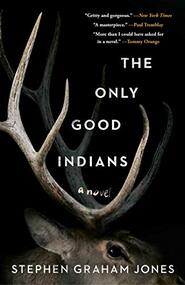 The Only Good Indians by Stephen Graham Jones Seamlessly blending classic horror and a dramatic narrative with sharp social commentary, The Only Good Indians follows four American Indian men after a disturbing event from their youth puts them in a desperate struggle for their lives. Tracked by an entity bent on revenge, these childhood friends are helpless as the culture and traditions they left behind catch up to them in a violent, vengeful way. Want to read it? Find it in the catalog / Find the Audio & eBook on Libby 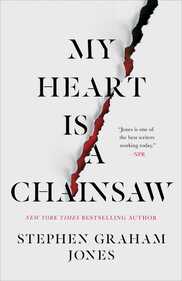 My Heart is a Chainsaw by Stephen Graham Jones Jade Daniels is an angry, half-Indian outcast with an abusive father, an absent mother, and an entire town that wants nothing to do with her. She lives in her own world, a world in which protection comes from an unusual source: horror movies…especially the ones where a masked killer seeks revenge on a world that wronged them. And Jade narrates the quirky history of Proofrock as if it is one of those movies. But when blood actually starts to spill into the waters of Indian Lake, she pulls us into her dizzying, encyclopedic mind of blood and masked murderers, and predicts exactly how the plot will unfold. Yet, even as Jade drags us into her dark fever dream, a surprising and intimate portrait emerges… a portrait of the scared and traumatized little girl beneath the Jason Voorhees mask: angry, yes, but also a girl who easily cries, fiercely loves, and desperately wants a home. A girl whose feelings are too big for her body. Want to read it? Find it in the Catalog / Find the Audio/eBook on Libby If you just want to get creeped out, then Mexican Gothic by Silvia Moreno-Garcia, the first 100 pages are a “slow burn” and really sets the reader up for the rest of the book. This book is definitely gothic horror inspired by Jane Eyre. It is a perfectly moldy book. 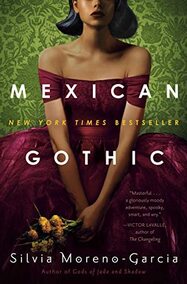 Mexican Gothic by Silvia Moreno-Garcia After receiving a frantic letter from her newly-wed cousin begging for someone to save her from a mysterious doom, Noemí Taboada heads to High Place, a distant house in the Mexican countryside. She’s not sure what she will find—her cousin’s husband, a handsome Englishman, is a stranger, and Noemí knows little about the region. Noemí is also an unlikely rescuer: She’s a glamorous debutante, and her chic gowns and perfect red lipstick are more suited for cocktail parties than amateur sleuthing. But she’s also tough and smart, with an indomitable will, and she is not afraid: Not of her cousin’s new husband, who is both menacing and alluring; not of his father, the ancient patriarch who seems to be fascinated by Noemí; and not even of the house itself, which begins to invade Noemí’s dreams with visions of blood and doom. Her only ally in this inhospitable abode is the family’s youngest son. Shy and gentle, he seems to want to help Noemí, but might also be hiding dark knowledge of his family’s past. For there are many secrets behind the walls of High Place. The family’s once colossal wealth and faded mining empire kept them from prying eyes, but as Noemí digs deeper she unearths stories of violence and madness. And Noemí, mesmerized by the terrifying yet seductive world of High Place, may soon find it impossible to ever leave this enigmatic house behind. Want to read it? Find it in the Catalog / Find the Audio and eBook in Libby It. By Stephen King. Its horrific, creepy, and this is the reason people fear clowns. Classic. 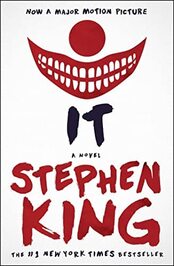 It by Stephen King o the children, the town was their whole world. To the adults, knowing better, Derry, Maine, was just their home town: familiar, well-ordered, a good place to live. It was the children who saw--and felt--what made Derry so horribly different. In the storm drains, in the sewers, It lurked, taking on the shape of every nightmare, each person's deepest dread. Sometimes It reached up, seizing, tearing, killing ... The adults, knowing better, knew nothing. Time passed and the children grew up, moved away. The horror of It was deep-buried, wrapped in forgetfulness. Until the grown-up chldren were called back, once more to confront It as It stirred and coiled in the sullen depths of their memories, reaching up again to make their past nightmares a terrible present reality. Want to read it? Find it the Catalog (Bonus: screen TONS of Stephen King's movies on Hoopla.) 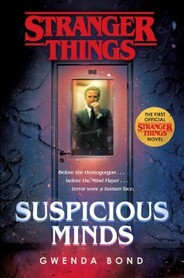 Suspicious Minds by Gwenda Bond A mysterious lab. A sinister scientist. A secret history. If you think you know the truth behind Eleven's mother, prepare to have your mind turned Upside Down in this thrilling prequel to the hit show Stranger Things. It's the summer of 1969, and the shock of conflict reverberates through the youth of America, both at home and abroad. As a student at a quiet college campus in the heartland of Indiana, Terry Ives couldn't be farther from the front lines of Vietnam or the incendiary protests in Washington. But the world is changing, and Terry isn't content to watch from the sidelines. When word gets around about an important government experiment in the small town of Hawkins, she signs on as a test subject for the project, code named MKULTRA. Unmarked vans, a remote lab deep in the woods, mind-altering substances administered by tight lipped researchers . . . and a mystery the young and restless Terry is determined to uncover. But behind the walls of Hawkins National Laboratory--and the piercing gaze of its director, Dr. Martin Brenner--lurks a conspiracy greater than Terry could have ever imagined. To face it, she'll need the help of her fellow test subjects, including one so mysterious the world doesn't know she exists--a young girl with unexplainable, superhuman powers and a number instead of a name: 008. Amid the rising tensions of the new decade, Terry Ives and Martin Brenner have begun a different kind of war--one where the human mind is the battlefield. Want to read it? Find it in the Catalog / Find the Audio on Libby 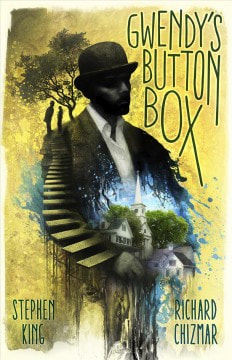 Gwendy's Button Box by Stephen King There are three ways up to Castle View from the town of Castle Rock: Route 117, Pleasant Road, and the Suicide Stairs. Every day in the summer of 1974, twelve-year-old Gwendy Peterson has taken the stairs, which are held by strong, if time-rusted, iron bolts and zig-zag up the cliffside. Then one day when Gwendy gets to the top of Castle View, after catching her breath and hearing the shouts of kids on the playground below, a stranger calls to her. There on a bench in the shade sits a man in black jeans, a black coat, and a white shirt unbuttoned at the top. On his head is a small, neat black hat. The time will come when Gwendy has nightmares about that hat. Want to read it? Find it in the Catalog / Find Audio & eBook on Libby 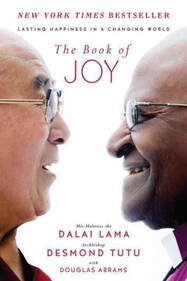 Non-Fiction Review by Marjorie Thelen (Find Marjorie Thelen's books in the catalog or on her website) The Book of Joy – Lasting Happiness in a Changing World by His Holiness the Dalai Lama and Archbishop Desmond Tutu with Doug Abrams, 2016. Find it the catalog here. This is an uplifting and inspiring book about two giants in the spiritual community -- Bishop Desmond Tutu and the Dalai Lama. Both are Nobel Prize Laurates. The Dalai Lama is head of the main Tibetan lineage of Buddhism. Tutu was a social rights activist and Anglican Bishop in South Africa. The book asks the question of how to find joy in the face of life’s inevitable hardships. Doug Abrams, writer, journalist, and friend, accompanied Bishop Tutu on a trip to Dharamsala, India to celebrate the Dalai Lama’s 80th birthday in April 2015. It was a strenuous journey for the archbishop who was suffering from cancer at the time. He died in 2021. The Bishop and the Dalai Lama had long been great friends. The more delightful part of their friendship was their ability to giggle together, to keep their sense of humor. Dharmsala sits in the Indian foothills of the Himalayas, and it has been the Dalai Lamas’ refuge since he was forced out of Tibet by the Chinese in 1959. Bishop Tutu was a leading force in driving apartheid out of South Africa. Both men have known unbearable hardships, but still retain unspeakable joy. The essence of the book is true joyfulness comes from helping others, the way to change our world is by teaching compassion, and the ultimate source of happiness lies within ourselves. If you need inspiration, read this book. 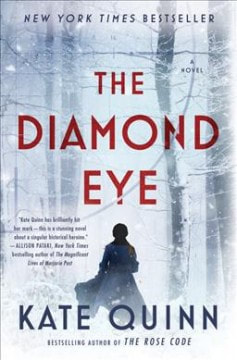 Fiction Review (Audiobook) by Cheryl Hancock (Our Harney County Library Director) Diamond Eye by Kate Quinn Find in the catalog here. Historical fiction at its best! The reader is fabulous, the story riveting and although it’s a fictional account, it is based entirely on the true story of a woman sniper in the Russian army during World War II. Sometimes called Lady Midnight, other times Lady Death, Lyudmila Pavlichenko was a young single mother who became a sharpshooter so she could also be a father to her son. When Hitler invaded Russia, this young woman joined the army, became a sniper and began to record kills of the enemy, eventually totaling over 300. This fascinating story is full of family and friends, bravery, heartbreak and heroism and narrated perfectly by an extraordinary reader – I highly recommend it!
Read it and looking for something to read next? Try one of these titles! The Girls in the Stilt House by Kelly Mustian
Before We Were Yours by Lisa Wingate
The Marsh King's Daughter by Karen Dionne
The Great Alone by Kristin Hannah
The Giver of Stars by Jojo Moyes
Educated by Tara Westover
Have recommendations to share? Leave them in the comments section!
August Nonfiction Book Reviews by Marjorie Thelen (Find Marjorie Thelen's books in the catalog or on her website) Being interested in history, I look for authors and scholars who examine history from a different perspective. There are three such volumes available at the Harney County Library that feature scholars interested in looking at history from an Indigenous perspective. I recommend all three. 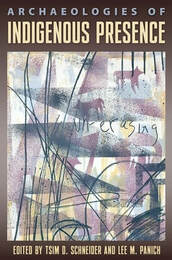 Archaeologies of Indigenous Presence, 2022 edited by Tsim D. Schneider and Lee M. Panich. This is a collection of articles by a wide representation of anthropologists and archaeologists, some Indigenous. Among other subjects, they discuss how to incorporate Indigenous knowledge or presence into archaeological practice and research. Diane Teeman, enrolled member of the Burns Paiute tribe, and her colleague, Sarah E. Cowie, write about “Navigating Entanglements and Mitigating Intergenerational Trauma in Two Collaborative Projects”. Teeman’s project is “Our Ancestors Walk of Sorrow” about the forced removal of the Burns Paiute Tribe from their ancestral homelands in the winter of 1879. Cowie’s project “Stewart Indian School Project in Carson City, Nevada” discusses the federal government’s forced assimilation of Native children from 1890 to 1980. Teeman is currently a doctoral candidate and faculty research assistant in the Department of Anthropology at the University of Nevada, Reno. Cowie is a professor of anthropology at the same university. It is especially worth reading their articles, which start on page 265. They are thought-provoking and deserve careful reading as do the other articles in the book. As the editors, Schneider and Panich, point out “we will do well to reforge our institutional boilerplate to acknowledge that Native people have been here all along.” (See it in the catalog here.) 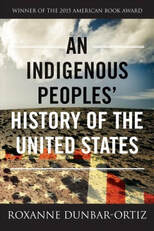 An Indigenous Peoples History of the United States, 2014 by Roxanne Dunbar-Ortiz. This Indigenous scholar looks at the history of the U.S. from an Indigenous perspective. She identifies settler colonialism as one of the primary causes of the harm done to Indigenous peoples and culture. The U. S. westward expansion took land from Indigenous peoples, moving them to reservations where promises by the U.S. government weren’t kept. Native culture was destroyed, and whole tribes exterminated. Indigenous children were moved to government and church run boarding schools to “civilize” them. Native peoples resisted, and they point out that “We are still here.” All of us need to read this perspective of history. (See it in the catalog here.) 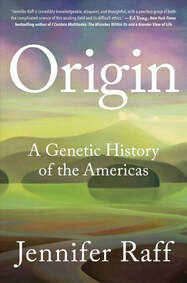 Origin – A Genetic History of the Americas, 2022 by Jennifer Raft. This anthropologist and geneticist speculates on how First Peoples arrived in North and South America based on sequencing their complete genomes. The migration of First Peoples is surrounded by controversy. Raft is critical of some of the outlandish theories that surround certain First Peoples sites in the U.S like the mound builders. If you want to learn about the speculation on how First Peoples arrived and thrived in “the New World” for thousands of years, take a look at this book. It is a challenging read. (See it in the catalog here.) July Nonfiction Book Review by Marjorie Thelen 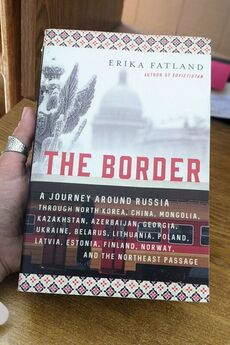 The Border – by Erika Fatland (Find it at the Harney County Library & in the catalog here) This book will appeal to readers who like history, international politics, and armchair travel. It’s well-written and researched by a young Norwegian travel journalist who visited all those countries listed in the title over an eight-month period in 2016. She wanted to learn how Russia has influenced the enormous region it borders upon. Fatland talked about Russia with everyone she met along the way. She relates many amazing, troubling, and shocking stories about what an aggressive bully Russia has been with its neighbors since the start of the tsars in the 15th century. Borders over the centuries changed so many times it makes the head spin. The tsars, the Soviets, and the communists killed or deported millions of people who got in their way and leveled whole towns. Putin is following the same mold. If you want to understand the current war that Russia is waging against Ukraine, read this book. It is an eye opener. Have a review you'd like to submit? Send it to harneycl@harneycountylibrary.org Harney County Library provides an array of public-use technology, alongside our digital services and online learning opportunities. Take a look: Things You Can Take Home Hotspots The library has twenty mobile hotspots purchased with an ARPA grant from the State Library. You can place them on hold in the catalog or give us a call at 541-573-6670. These hotspots offer unlimited data. They can be connected to any smartphone, laptop, tablet, and more (even smart TVs!). You are able to check out these items for 3 weeks, no renewals. You must be 18+ and your account must be in good standing.  Laptop Tech to Go Kits! The latest addition to our technology offering – we circulate two laptop Tech to Go kits. These kits include a laptop, charging cord, mobile hotspot, hotspot cord, and an instruction sheet – all tucked into a laptop bag. This allows you to conduct Zoom interviews or Telehealth meetings at home, work on a project, and more! These laptops were also purchased with funds from an ARPA Grant from the State Library. 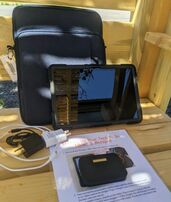 Tablet Tech to Go Kit! The tablet kit includes a tablet, charging cord, mobile hotspot, hotspot cord, an instruction sheet, and a carrying case. The apps available on the tablet include all the Harney County Library e-resources like Hoopla, Library2Go, and Rocket Languages, as well as other apps you may find useful like an internet browser, YouTube, and Zoom. Check out a TV series on the Hoopla app (free with your library card), Zoom with your grandkids across the country, and more! (Tablet was purchased with funds from an ARPA Grant from the State Library.) In-Library Resources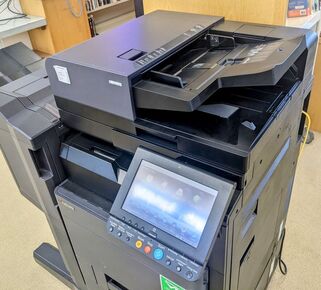 Printing & Faxing The library offers print services – you are able to print from the aforementioned public computers, as well as via email – stop into the library, forward whatever documents you need printed to print@harneycountylibrary.org, and a front desk staffer can help you out! Charges for copies are the following: $0.10/page for black & white copies, $0.50/page for color or larger copies (11x17). If you need something faxed, we charge $0.50/page (we do not charge for the cover sheet). We can receive faxes for you for $0.10/page. Scan to Email/Flash Drive Free. Materials can be scanned and sent to an email on our copier, or you can bring your own flash drive and copy to it. Front desk staff are always on hand if you need help. 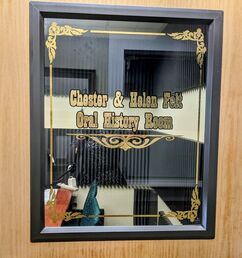 Remote Interview/Telehealth/Podcasting Space If you need access to a space for doing a remote interview or telehealth visit, Harney County Library has our Oral History Recording Room available. This space is quiet, private, and available to be booked. We also have a public-use laptop with a webcam that you can use (you will be required to sign in and leave your ID at the front desk to use it). To book time in the Recording Room, stop into the library or give us a call at 541-573-6670! The Claire McGill Luce Western History Room at the Harney County Library takes the opportunity this Juneteenth to recognize the contributions of author and former Harney County resident Martha Anderson.
June 19th or "Juneteenth" marks the day when federal troops arrived in Galveston, Texas in 1865 to take control of the state and ensure that all enslaved people be freed. The troops’ arrival came a full two and a half years after the signing of the Emancipation Proclamation. Juneteenth honors the end to slavery in the United States and is considered the longest-running African American holiday. On June 17, 2021, it officially became a federal holiday. “If anyone had told me before I began my research that the West practiced slavery in the open, I wouldn’t have believed it, “ said former Harney County resident Mrs. Martha Anderson. Her research dug into the history of Black men and women, like herself, who were making significant contributions to rural and urban communities following the westward movement of Blacks after the civil war. She compiled the stories and information she discovered into a ground-breaking book, “Black Pioneers of the Northwest 1800-1918.” “The Blacks that settled in the West in the 1800s, she said, proved that “it doesn’t take a million dollars to be a good citizen. Rather, they showed the ability to work under any circumstances.” Martha Anderson was no stranger to overcoming adversity herself. Together with her husband Walter Anderson, and his brother Oscar and wife, they constituted the entire Black population of Harney County for decades. After spending forty years building a successful cattle ranch in the Juniper Lake area of Harney County, declining health forced Walter and his wife to seek out a different line of work. The couple sold their ranch in 1952 and purchased a small hotel on Portland’s east side. Mounting medical bills and Walter’s death six years later coincided with a downturn in hotel business that put Martha in dire financial straits. Never a quitter, she sought financial advice from good friend, astute businesswoman, and neighboring Harney County rancher, Mary (Neal) Kueny. Thanks to the generosity of Mary Kueny’s great-niece, Lois Renwick, a year-long series of correspondence between Mary and Martha Anderson has been donated to the archives of the Claire McGill Luce Western History Room. More than a dozen letters of correspondence were received by Mary Kueny from Martha between 1958 and 1959. Some of the letters detail prospects for buyers of the hotel. Others describe business conditions in Portland at the time. A tone of melancholy prevails throughout. On November 24, 1958, she writes: “I am tired and lonely. Tho grateful for good health and strength. My problems seem to get larger and larger and business is very slow. I want to sell out as every way that I have tried to boost the income of this place it has not worked. Some of it I can lay to bad timing. But, it looks like Portland is not a good place for me…I intend to hold up Dad’s name as long as I have a breath. But, all these complications are confusing me…You have had lots of experience in managing things and know how to do business. Do you think I would be wrong in leaving here?... Walt hated a quitter, but truly I wish I was up in the hills with you… This is a cheerful light old building and Dad and I had some happy days here but is seems like it’s time to get to getting.” Martha Anderson rallied from the setbacks of those troubled years and became a practical nurse before dedicating herself to documenting the history of Black pioneers across the West. Read copies of Martha Anderson’s correspondence in person in the Western History Room or look for them to appear soon in our online digital collections. |
Authors
Authored by the staff at Harney County Library! Archives
March 2024
Categories
All
|

 RSS Feed
RSS Feed
